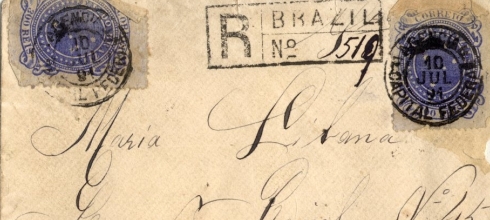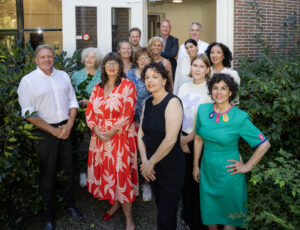Portugal: Country of Emigration
Migration was common for Portuguese families during the nineteenth and early twentieth centuries, making Portugal one of the countries with the highest levels of emigration in Europe. Portuguese migrants participated in labor circuits that spanned a wide range of destinations, including labor-importing countries in the Americas and Europe as well as Portugal’s colonies and other colonial territories in Africa. Unskilled laborers and farmers constituted the vast majority of migrants, but they were also skilled workers and commercial clerks, as well as high-ranking personnel of metropolitan companies and colonial administrators.
Migration was a gendered strategy. In the case of married migrants, this economic strategy relied on women’s central role in the home. As migrant men worked abroad, the wives who stayed behind performed numerous economic activities. For example, in rural areas—from which most Portuguese migrants hailed—women took care of the household, worked on the family land, and allocated the money their husbands sent back home. For families separated by migration, remittances were important for subsistence, and crucial for the dream of securing the family’s future through savings and investments. Most male migration was temporary, and it was common for men to migrate several times over the course of their adult lives. In many cases, men will be joined abroad by their wives and children, even if this move was also frequently considered temporary. Not surprisingly, however, often family reunification turned into long-term or permanent relocation. In these transnational families, migrant husbands and their wives as well as migrant parents and their children had to negotiate and adapt to new roles, responsibilities, and expectations.
Personal Letters
In my work, I examine personal letters in order to better understand how Portuguese migrants and their families evaluated the choice to migrate, the opportunities at home and abroad, as well as their hopes, dreams, and the perceptions of a fluid reality created by geographical mobility. Migrant letters offer a unique lens to learn about this dynamic reality as it was unfolding. In particular, my project explores the analytical possibilities of a variety of migrant correspondence commonly known as call letters (cartas de chamada, in Portuguese). These letters were used by Portuguese migrants who were already abroad to ask their families to join them. Call letters were required by the Portuguese authorities for married women and minors, as they were not allowed to emigrate alone without the explicit consent of their husbands or fathers. Personal letters were used as proof of authorization when the husband or father was abroad until the 1920s, when they were replaced by a standardized form.
The fortuitous preservation of these personal letters used as call letters opens exciting possibilities for a social and cultural history of Portuguese migration, and in particular for a migrant-centered perspective of the migration experience. Call letters were part of ongoing epistolary exchanges between migrants and their families, but they are unique in that the imminent reunification brings to the fore explicit considerations of family strategies, aspirations, and negotiations between husbands and wives (and other family members), as well as rich information about the journey. This source is particularly significant for the study of Portuguese migration, as collections of personal letters are all but absent in archival holdings, and letters written by men and women from the popular sectors of society are even rarer.
Envelope of a Call Letter. Courtesy of Arquivo Distrital de Braga.
Thousands of Voices, Diverse Perspectives
After more than a decade of archival research, I am currently working with a corpus of over 2,000 letters from several Portuguese regions and spanning approximately fifty years (1870s to the 1920s). There are, of course, some special characteristics of this type of letter as well as limitations. One of them is the blurred boundaries between the private and the public nature of the source, but this is not unusual for family correspondence in general, as letters were commonly read out loud and shared among kin and friends. Call letters add an extra dimension to the private-public continuum because of their use in official business. In fact, many letter writers were clearly aware that their letters would be presented to the authorities, and they included explicit reminders to the recipient to do so. Yet even among these writers there was a remarkably candid approach to both style and content, and there is very little evidence of self-imposed censorship. Another obvious caveat is that the predominant voice in these letters is that of male migrants, particularly husbands. However, I would suggest that even through this filter, it is possible to uncover women’s perspectives and actions. Finally, unlike other types of migrant letters, call letters are not part of large family collections. Rather, in most cases, there is just one letter per family. With these limitations in mind, the corpus that I collected for this project provides a polyphonic perspective of thousands of voices over a vast geographic and temporal space that allows us to identify narrative patterns without losing sight of unique stories.
Methodologically, my work combines different approaches which allow me to study migrant letters as both historical sources and texts. I am particularly interested in bringing together perspectives and traditions that have remained largely independent from each other. On the one hand, my work builds on classic analyses from the social history of migration, in particular from scholarship on the immigrant/emigrant letter which is especially prolific for the cases of the United States and northern Europe. Another body of research that informs my analysis is the scholarship on popular writing cultures and practices. Finally, I make use of tools from qualitative discourse analysis and corpus linguistics.
Material and Emotional Negotiations
In terms of content, the letters in the corpus cover a wide range of topics including the motives of migration, the lives of migrant families, the domestic economy, migration as a family strategy, the ways in which migrants viewed their places of origin and destination, the process of migration and decision-making, and the journey itself. My work explores these different dimensions of analysis, but I am particularly interested in the ways in which call letters can be used to examine the material and emotional negotiations of family and gender relations. Since the majority of call letters were sent to married women by their husbands, they provide us with a window into the analysis of family and gender relations in transnational situations.
The following examples from the corpus of call letters provide a glimpse into their richness and analytical possibilities. Here, I include examples that illustrate how correspondence was a medium for husband migrants and their wives to negotiate their new positions and roles while discussing both economic and emotional matters related to family separation and possible reunification.
Maria, you sell the donkey and rent the gardening fields, the other fields, the forest land, and the hay house at Paço to my brother if he wants them for his animals. I leave everything for 80 measures which is very cheap—half the land for wheat and half for corn. . . . And take all the chestnut wood and all the firewood and all the tools, and organize everything in the upper buildings, all of it well organized. And don’t leave any boxes on the floor because they will rotten. (António to his wife Maria Conceição, Manaus, 23 Dec. 1915).
I don’t know how you get the idea of writing in every letter that I don’t send you money often enough. You know perfectly well that I can’t read, and I have to go through the shame of being read to while you write those things in every letter. [If] I don’t send you money is because I can’t. You don’t imagine that here money can be shoveled from the ground. (Francisco to his wife Etelvina, Gloucester, Mass., 4 Aug. 1916).
In your letter you say that I have a woman here, but I must tell you: there are plenty of women here, but they belong to other people; and even more I tell you, they are not good enough to kiss the feet of Portuguese women. (Joaquim to his wife Maria Paulina, Santos, 10 Feb. 1896).
… only when I see you will I be able to thank you for the dreams you have had of me. Only then will I consider myself happy in the arms of the woman I love the most. That woman is you, whom I feel like an arrow piercing through my heart. And there will never be a woman who can take away what I want which is, for our peace, to see you and our children with me. And if you don’t do it, I will disappear and none of our acquaintances will ever see me again. Because not an hour goes by that you are not in my mind. (Alberto to his wife Joaquina, Rio de Janeiro, 13 Oct. 1908).
These few examples refer to topics such as household management and domestic economy; remittances; fidelity; marital obligations; family expectations and responsibilities; the strains created by separation; and the ways in which correspondence served to keep affective bonds and relationships alive. Their content and language mix economic and emotional affairs, ordinary concerns and matters of the heart. Far from extraordinary, however, these examples reflect the rich nature of this source and represent broader trends and recurring themes in the corpus of Portuguese migrant letters that I am analyzing.
Epistolary Connections
Letters helped maintain relationships over time and across vast distances, and facilitated the functioning of transnational families. They also provided a space in which conflicts and tensions among family members played out, and in which emotions were put into words and on paper. Emigration exposed large numbers of Portuguese men and women to written communication. Indeed, for the vast majority of migrants, separation from their families created the first need for writing. For this reason, these personal letters used by Portuguese migrants as call letters provide a unique opportunity for us to learn about the expectations, desires, fears, and joys of barely literate or illiterate people whose lives were deeply transformed by migration, and whose experiences and perspectives have otherwise gone largely unrecorded.
About the Author
Marcelo Borges is Professor of History at Dickinson College, Carlisle, Pennsylvania. He was a EURIAS Senior Fellow 2013/14 at NIAS, where he has been studying the correspondence of Portuguese families separated by migration at the turn of the twentieth century.




